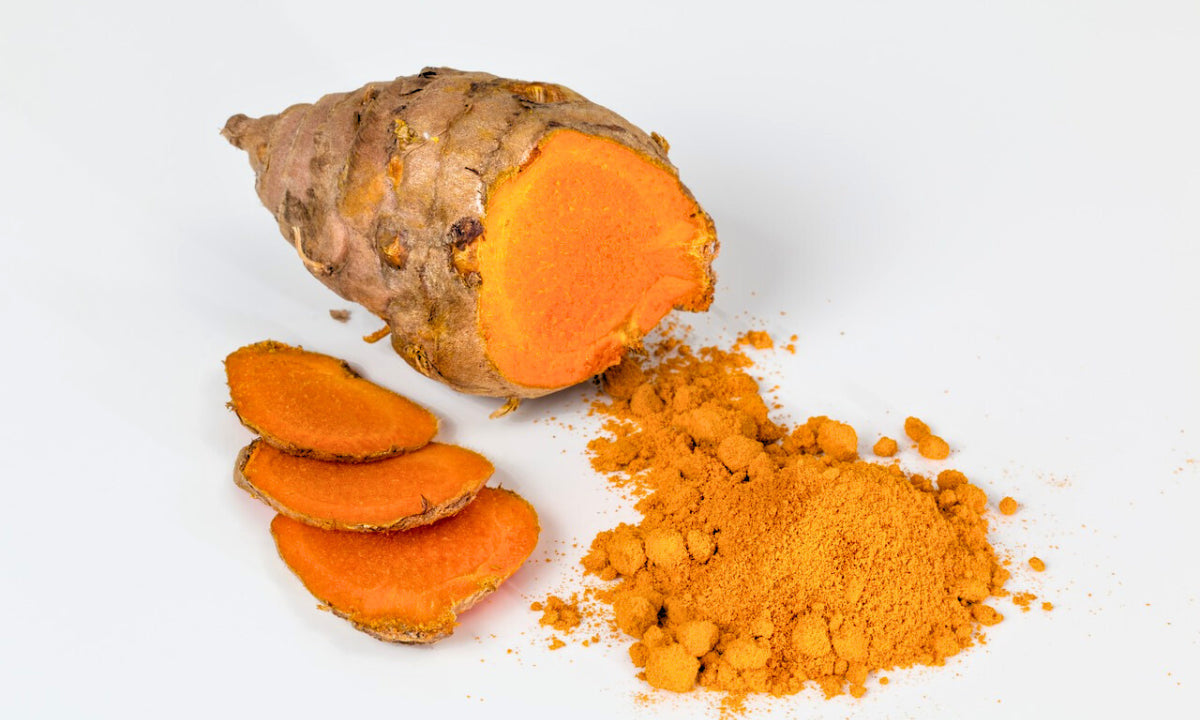Your Cart is Empty
FREE SHIPPING on US orders over $45. Save 25% With Code TAKE25 at checkout.
FREE SHIPPING on US orders over $45. Save 25% With Code TAKE25 at checkout.
Your Cart is Empty

Why Turmeric? Why is turmeric skincare a secret? The answer lies in its antioxidants and anti-inflammatory content. These elements complement each other to give a natural glow and cater to different skincare issues. Turmeric has several roles on the skin, from brightening dark spots to accelerating wound healing.
| Definition | Turmeric is a bright yellow spice derived from a root |
| Benefits | Antioxidant, anti-inflammatory, skin-lightening |
| Drawbacks | Potential skin staining, low bioavailability |
| Recommended Usage | Moderate application for skincare benefits |
| Precautions | Patch test for allergies, avoid excessive use |
| Works Well With | Honey, yogurt, neem, in skincare concoctions |
Let's dive deep into Turmeric's many skin care benefits and its secret power towards naturally glowing skin.
Turmeric contains high levels of antioxidants and anti-inflammatory agents. It gives dull skin a final goodbye and says hello to a radiant, lustrous glow.
Turmeric goes beyond its culinary appeal to reveal curcumin as a powerful companion in wound healing. Curcumin helps the body to heal itself faster by reducing inflammation and oxidation. Such studies even suggest the optimization of tissue and collagen, making the skin wound healing even better.
Turmeric is a natural remedy for those people with psoriasis. Its antioxidant properties and anti-inflammatory actions may effectively control psoriasis flares and symptoms. Turmeric, as a supplement or in your recipes, can be a crucial element of your psoriasis treatment regimen.
Turmeric is an anti-inflammatory agent that directly attacks pores to soothe the skin and reduce scarring, promoting a clearer complexion. It is a lifesaver for those looking for a permanent solution to skin problems associated with acne.
A study demonstrated the effectiveness of Turmeric and neem in treating scabies. Due to its multi-purpose features, Turmeric is among the strongest competitors in treating various skin disorders.
Turmeric continues to treat diverse skin conditions, such as eczema, alopecia, and lichen planus. The interest in turmeric-based skincare applications is rooted in Turmeric's long history of traditional medicine.
From being a staple with solid antioxidants and anti-inflammatory properties, it helps in the skin-lightening process for the revelation of a natural radiant glow till finally reaching the spotlight. It is not just a spice; and it is a beauty ritual.
Turmeric is a great enemy of the bacteria Cutibacterium acnes, which is responsible for these acne breakouts. Curcumin is an active component that is a powerful antioxidant that acts against acne vulgaris. The anti-inflammatory property of Turmeric helps reduce skin inflammation and speed up the healing process.
Turmeric not only has healing benefits but also moisturizes dry, dehydrated skin. Turmeric helps shed dead skin cells, creating new, healthy, hydrated skin.
Turmeric would only be complete by recognizing its role as a savior from the dangers of environmental degradation. A shield of antioxidants found in Turmeric shields it from pollution, sun exposure, and other environmental irritants. Your skin deserves nothing less.
Now, it is time to discuss how it can bring a new change to your skincare routine.
Have you heard of Turmeric face masks but don't know how to apply them? You can make an effective turmeric mask in your home using essential ingredients like Greek yogurt and honey. It is your way to glowing skin.
Turmeric is a natural acne and dark spot cure. Try turmeric cleansers around the world. Find out how Turmeric, with chickpea powder and milk, will play a different level game in your skincare routine.
Would you like to use turmeric essential oil for radiant skin? Figure out the merits of olive oil combined with turmeric oil. These few drops of this potion can do to protect against blemishes and leave your skin glowing.
Are you aware that there are benefits of turmeric milk not only for your health but also for your skin? They give the double advantage of drinking turmeric milk and washing your skin with it. Add this to your routine and wave bye-bye to dull, dehydrated skin.
However, Turmeric is a skincare gem, and awareness of possible dangers is essential.
Yes, you can apply turmeric into your daily skincare routine. However, moderation is key. Daily application of a turmeric-infused face mask or cleanser can help to trigger its antioxidant and anti-inflammatory benefits.
Yes, turmeric can lighten skin and has skin-lightening properties. The active component, curcumin, inhibits melanin production, contributing to a more even skin tone. Regular use of turmeric may help lighten dark spots and hyperpigmentation.
Turmeric offers a range of benefits for the face. Its antioxidant properties help combat free radicals, reducing signs of aging. The anti-inflammatory nature aids in soothing and calming the skin, making it beneficial for conditions like acne.
Yes, turmeric can remove fade dark spots. Its skin-brightening agents, coupled with anti-inflammatory properties, can contribute to reducing the appearance of dark spots and acne scars. Regular application may lead to a more even complexion.
Therefore, Turmeric is not simply a spice but a beauty potion ready to revolutionize your skincare regimen. Turmeric has antioxidant and anti-inflammatory substances that can fight many skin issues like acne scars and psoriasis. Homemade turmeric masks, cleansers, and oils – embrace the golden glow. Nevertheless, use it moderately, as too much of it may result in discoloring and possibly allergic reactions. Turn Turmeric into your friend for healthy and glowing skin.